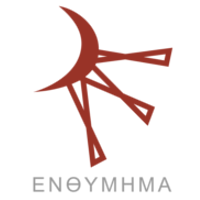Is There a Chronotope of the Short Story?
DOI:
https://doi.org/10.54103/2037-2426/22764Parole chiave:
Chronotope, Horizontal, Vertical, Genericity, Short storyAbstract
The present article suggests a means to reconceptualize the chronotope in order to widen its application and rethink its generic relations to the individual text. Bakhtin singles out an overarching chronotope for every novelistic genre and subgenre, considered as historic essences. However, he also identifies a horizontal and a vertical dimension of the chronotope which may coexist in a narrative. By focusing on these dimensions, we may analyze individual narratives taken from different genres. In particular, the article shows just how noteworthy are the affinities between the vertical dimension of the chronotope, as outlined by Bakhtin himself, and an extensive theorization of the short story beginning with the German Romantics. The methodological shift thus advocates a study of the specific genericity of an individual text rather than to the insertion of the text into a broadly categorized genre.
Downloads
Riferimenti bibliografici
Bakhtin, Mikhail. “Forms of time and chronotope in the novel.” 1937-1938. The Dialogic Imagination: Four Essays by M. M. Bakhtin, edited by Michael Holquist and Caryl Emerson, University of Texas Press, 1981, pp. 84-258.
Beckman, Frida. The Paranoid Chronotope: Power, Truth, Identity. Stanford University Press, 2022. DOI: https://doi.org/10.1515/9781503631618
Bemong, Nele, and Pieter Borghart. “Bakhtin’s theory of the literary chronotope: reflections, applications, perspectives.” Bakhtin’s Theory of the Literary Chronotope: Reflections, Applications, Perspectives, edited by Nele Bemong, Pieter Borghart, Michel de Dobbeleer, Kristoffel Demoen, Koen de Temmerman and Bart Keunen, Academia Press, 2010, pp. 3-16.
Bemong, Nele, Pieter Borghart, Michel De Dobbeleer, Kristoffel Demoen, Koen De Temmerman, and Bart Keunen, editors. Bakhtin’s Theory of the Literary Chronotope: Reflections, Applications, Perspectives. Academia Press, 2010. DOI: https://doi.org/10.26530/OAPEN_377572
Collington, Tara. Lectures chronotopiques. Espace, temps et genres romanesques. XYZ, 2006.
Evrard, Frank. La nouvelle. Seuil, 1997.
Falconer, Rachel. “Bakhtin’s chronotope and the contemporary short story.” The South Atlantic Quarterly, vol. 97, no. 3-4, 1998, pp. 699-732. DOI: https://doi.org/10.1215/00382876-97-3/4-699
Frank, Joseph. “Spatial Form in Modern Literature: An Essay in Two Parts.” The Sewanee Review, vol. 53, no. 2, 1945, pp. 221-240.
Färnlöf, Hans. “Chronotope romanesque et perception du monde : à propos du Tour du monde en quatre-vingts jours.” Poétique, no. 152, 2007, pp. 439-456. DOI: https://doi.org/10.3917/poeti.152.0439
Goethe, Johann Wolfgang von. Conversations with Eckermann 1823–1832. Translated by John Oxenford, Everyman, 1930.
Goyet, Florence. La nouvelle 1870-1925. PUF, 1993.
Holquist, Michael. “Bakhtin and Rabelais: Theory as Praxis.” boundary 2, vol. 11, no. 1-2, 1982, pp. 5-19. DOI: https://doi.org/10.2307/303015
Holquist, Michael. “Introduction: the architectonics of answerability.” Art and Answerability by Mikhail Bakhtin, edited by Michael Holquist, University of Texas Press, 1990, pp. ix-lxix. DOI: https://doi.org/10.7560/704114-001
Holquist, Michael and Caryl Emerson. “Introduction.” The Dialogic Imagination: Four Essays by M. M. Bakhtin, edited by Michael Holquist and Caryl Emerson, University of Texas Press, 1981, pp. xv-xxxiii.
Hühn, Peter, John Pier and Wolf Schmid, editors. Handbook of Diachronic Narratology. De Gruyter, 2023. DOI: https://doi.org/10.1515/9783110617481
Keunen, Bart. Time and Imagination: Chronotopes in Western Narrative Culture. Northwestern University Press, 2011. DOI: https://doi.org/10.2307/j.ctv4cbg3n
Klapuri, Tintti. “The Provincial Chronotope and Modernity in Chekhov’s Short Fiction.” Bakhtin and his others: (inter)subjectivity, chronotope, dialogism, edited by Liisa Steinby and Tintti Klapuri, Anthem Pres, 2013, pp. 127-146. DOI: https://doi.org/10.7135/9780857283108.010
Ladin, Joy. “‘It was not Death’: The Poetic Career of the Chronotope.” Bakhtin’s Theory of the Literary Chronotope: Reflections, Applications, Perspectives, edited by Nele Bemong, Pieter Borghart, Michel de Dobbeleer, Kristoffel Demoen, Koen de Temmerman and Bart Keunen, Academia Press, 2010, pp. 131-155.
Lanser, Susan S. and Shlomith Rimmon-Kenan. “The Postclassical Chronotope: A Narratological Inquiry.” Poetics Today, vol. 43, no. 3, 2022, pp. 429-454. DOI: https://doi.org/10.1215/03335372-9780375
Lohafer, Susan. “A Cognitive Approach to Storyness.” The New Short Story Theories, edited by Charles E. May, Ohio University Press, 1994, pp. 301-311.
May, Charles E. “Metaphoric Motivation in Short Fiction: ‘In the Beginning Was the Story’.” Short Story Theory at a Crossroads, edited by Susan Lohafer & Jo Ellyn Clarey, Lousiana State University Press, 1989, pp. 62-73.
May, Charles E. “The Nature of Knowledge in Short Fiction.” The New Short Story Theories, edited by Charles E. May, Ohio University Press, 1994, pp. 131-43.
Mitterand, Henri. “Chronotopies romanesques: Germinal.” Poétique, no. 81, 1990, pp. 89-104.
Oswald, Thierry. La nouvelle. Hachette, 1996.
Ritella, Giuseppe, Antti Rajala, and Peter Renshaw. “Using chronotope to research the space-time relations of learning and education: Dimensions of the unit of analysis.” Learning, Culture and Social Interaction, no. 31, Part B, 2021. DOI: https://doi.org/10.1016/j.lcsi.2020.100381
Schlegel, Friedrich von. “On the Poetical Works of Giovanni Boccaccio.” The Aesthetic and Miscellaneous Works of Frederick von Schlegel, translated by E. J. Millington, Cambridge Uni-versity Press, 2014, pp. 200-224. DOI: https://doi.org/10.1017/CBO9781107049451.008
Schultz, Majken, Steve Maguire, Ann Langley, and Haridimos Tsoukas, editors. Constructing Identity in and around Organizations. Oxford University Press, 2012. DOI: https://doi.org/10.1093/acprof:oso/9780199640997.001.0001
Shklovsky, Viktor. Theory of prose. Dalkey Archive Press, 1990.
Spode, Hasso. “Time, space, and tourism.” The Plurality of Europe. Identities and Spaces, edited by Winfried Eberhard and Christian Lübke, Universitätsverlag, 2010, pp. 233-246.
Steinby, Liisa and Tintti Klapuri, editors. Bakhtin and his others: (inter)subjectivity, chronotope, dialogism. Anthem Pres, 2013. DOI: https://doi.org/10.7135/9780857283108
Tieck, Ludwig. “Wendepunkttheorie.” Novellentheorie: The practicality of the theoretical. De Gruy-ter Mouton, 1970, pp. 46-65.
Zoran, Gabriel. “Towards a Theory of Space in Narrative.” Poetics Today, vol. 5, no. 2, 1984, pp. 309-335. DOI: https://doi.org/10.2307/1771935
Dowloads
Pubblicato
Come citare
Fascicolo
Sezione
Licenza

Except where otherwise noted, the content of this site is licensed under a Creative Commons Attribution 4.0 Unported License.
Accettato 2025-01-07
Pubblicato 2025-03-11





